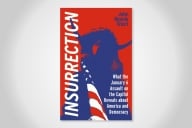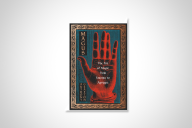You have /5 articles left.
Sign up for a free account or log in.
Complaints about academic prose are nothing new. A paper appearing in the journal Studies in the Renaissance in 1965 identified a zinger that might have appeared, in one form or another, in any of numerous books written between the 15th and the 17th centuries: "Aristotle's teaching is uncertain, for his way of expressing it was obscure. He is like the cuttlefish who obscures himself in his own ink when he feels himself about to be grasped."
The analogy was originally coined by a sarcastic Platonist in the second century A.D., but it really caught on among Aristotle's detractors during the Renaissance. Charles B. Schmitt, the author of the paper, points out an ironic feature of the complaint: whatever most of the scholars knew about the mollusk, they'd almost certainly learned from Aristotle's work. "For the sake of self-defense and self-preservation," the Greek polymath wrote, cuttlefish "have what is called their ink … When [one] is frightened and in terror, it produces this blackness and muddiness in the water, as it were a shield held in front of the body."
Putting down Aristotle while relying on Aristotle takes a certain amount of chutzpah. Be that as it may, the cuttlefish trope proved irresistible for polemicists. "After its introduction by one author into the repertoire of rhetorical weapons of the time," Schmitt says, "it would not be surprising to see it repeated over and over again by the opponents of Aristotelian philosophy." He suggests that the real target was "the conservative Aristotelians of the universities," more than the figure Dante called "the master of all who know."
Schmitt quotes a 19th-century dismissal of "this now thread-bare comparison." But it didn't vanish, just changed forms -- turning into an all-purpose way of criticizing an opaque author, with the cuttlefish replaced by the more familiar figure of the octopus, darting off in a cloud of ink.
An element of cunning -- of deliberate evasion -- is implied, either way. Pamela Haag knows better. A developmental editor of scholarly works, she has been a consultant for university presses and provided editorial guidance to authors of monographs, while also publishing her own books and articles, academic and otherwise. Experience has given her an expansive sense of how manuscripts can go sideways -- and of what can be done about it. Her Revise: The Scholar-Writer's Essential Guide to Tweaking, Editing, and Perfecting Your Manuscript (Yale University Press) has the format of a handbook, including a comprehensive yet concentrated checklist for performing a "style audit" on a draft. But it is as much essay as manual. You can read it more than once -- as a whole or in part -- and you probably should.
"Scholarly writing is challenging by its nature," Haag acknowledges, "but sometimes you might write it even more obscurely than it needs to be, and for the wrong reasons. Indeed, scholarly prose is probably the only branch of the nonfiction family where you might aspire to be less than entirely clear." The sensibility here is a world away from Strunk and White, whose classic The Elements of Style resembles Moses's stone tablets, covered with "Thou shalt nots." She grants that a text may be precisely as difficult to read as it must be. It is also possible to win the lottery, though probably best for everyone involved not to count on it.
The issue is not jargon, as such, which is inevitable. Every group with a shared activity or interest develops its own lingo, necessarily unfamiliar if not incomprehensible to outsiders -- and all too easily taken for granted by the initiated. A piece of jargon "can become such familiar shorthand," Haag writes, "that you feel as if you've made an argument simply by using the term … [rendering it] a crutch in your thinking even before you begin writing." It functions "as a proxy for an argument or as a trap door for having to make one."
An editor has the delicate obligation to point out that this has happened without sounding accusatory. Writers revising a manuscript have the equally or more difficult task of recognizing and calling out their own overreliance on discursive shortcuts and oblique face-saving strategies. For the trouble with unrevised academic prose is, to use Haag's own nicely turned piece of jargon, "psycho-editorial": a scholar's research and insights are refracted through the anxiety of demonstrating authority by pre-emptively responding to anyone who might challenge it. Revision implies a degree of soul-searching, typically with the added pressure of meeting a deadline.
Revise contains both an extensive catalog of revision-worthy tendencies in scholarly writing and scores of examples of how Haag would address them. At no point does the expression "dumbing down" apply. Distributed at various points throughout the length of the text is a manual of psycho-editorial counseling that pulls no punches. "Rather than writing to appease your inner critic," she notes, "you might sometimes write to confuse him, to throw him off the trail." Revise could only have been written by someone who's been there but gotten away.
Here's a confessional passage from the book I quote with gratitude that Inside Higher Ed has abolished the comments section:
"I had an editor," Haag recalls, "who once accused me of resorting to 'academic obscurantism' to avoid stating an argument clearly, and it was a valid critique. In my case, I was afraid of getting shot and killed by a member of the NRA, so perhaps I was seeking to make my argument on the gun industry so historically precise and circumscribed that it would become harmlessly quaint … With certain topics, then, I understand why the scholar-writer would perhaps subconsciously seek sanctuary in obscure diction. The alternative -- being understood quite clearly -- might be worse."
The cuttlefish has its reasons.








